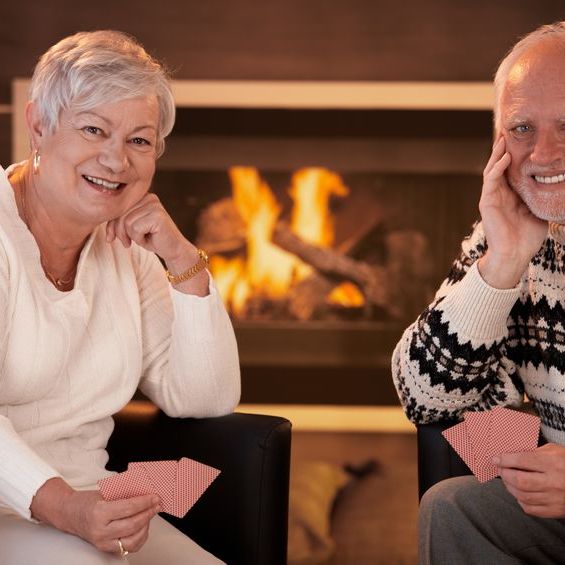iSavta | 21.03.2021

Snow and chilly temperatures are already hard to deal with even if you are a young and healthy adult. But, winter weather can be downright dangerous for the elderly.
Here are some helpful tips to ensure that your senior patients stay warm and safe once the cold winter months kick in:
Hypothermia Prevention
Cold weather and seniors are a recipe for disaster. Older adults are at higher risk of cold-related fatality. In particular, people aged 75 and older are more vulnerable to cold weather since they often have a slower metabolism, less efficient circulation, and less body fat. Some medical conditions like liver disease, kidney disorders, and heart disease, and medications also affect the ability of the elderly to properly regulate body temperature.
This means that seniors can suffer from hypothermia even indoors so make sure that the thermostat is always set higher than 65 degrees Fahrenheit for seniors who are 75 years old or higher. Make sure they are also warmly dressed whether outside or inside the house.
Encourage Proper Hydration
Elderly patients are specifically at risk of dehydration since they drink and eat less compared to younger people, which means that their water consumption is lesser. People generally feel less thirsty in winter and they don’t drink fluid as they should. Dry and cold air can also lead to loss of moisture.
Make sure that your elderly patient drinks consistently. Common signs of dehydration in older adults include dark urine, infrequent urination, confusion, and dizziness. Dehydration complications tend to be a bit serious but monitoring intake of the water is an easy way to ensure that your patient gets enough fluids.
Brace for Snow and Ice to Reduce Risks of Falls
Sidewalks slick with snow and ice pose serious falling hazards for elderly people. See to it that the porch, sidewalk, steps, and driveway of your patient are completely shoveled and salted. When going out, make sure you maximize the stability of your patient by making sure that they wear well-fitting shoes complete with non-slip soles as well as new treads or tips on the mobility aids they are using.
Use Space Heaters Wisely
Although space heaters can offer much-needed warmth and comfort during colder months, it is important to take precautions to ensure that these heat sources don’t turn into health hazards. If there is a gas-powered generator or heater, check that there is at least a single working carbon monoxide detector in the house. For those using electric heaters, check for fraying in power cords and remove damaged devices. Heaters should be at a safe distance away from any inflammable material like paper and cloth.
Bundle Up
Coats, hats, sweaters, scarves, and mittens are just some of the must-have pieces of clothing for seniors who live in colder areas. Even if an elderly patiently only stay indoors, make sure that they are dressed in comfortable and warm layers that they can just take off the items if they feel hot or wear more if they feel cold.



